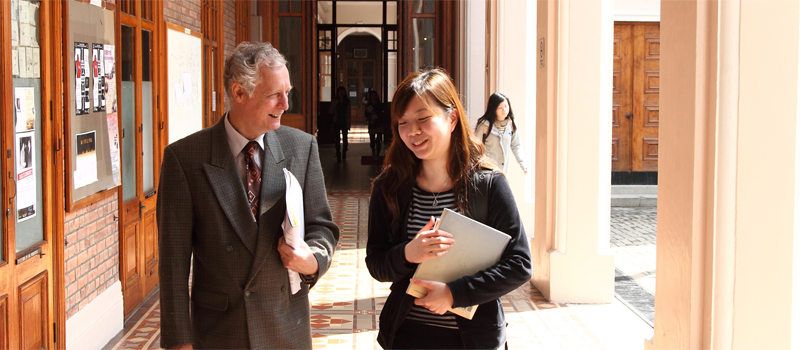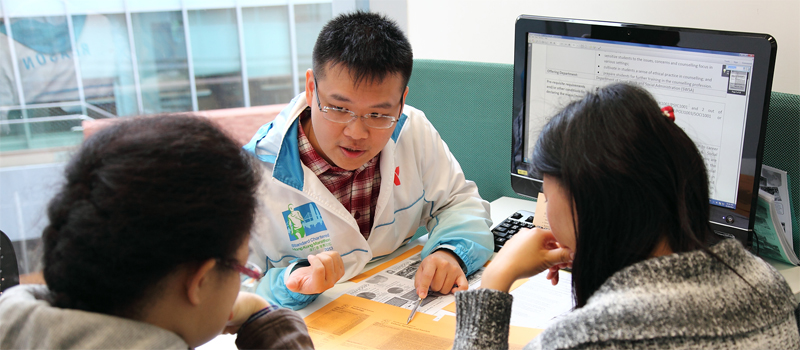The academic advising system at HKU emphasizes the construction of learning relationships especially for students in their first year of study. This compliments the developmental academic advising model by building a collaborative learning relationship between the adviser and advisee. These relationships and positive interactions reinforce to students their roles and responsibilities within the academic community and help ease the transition to University life, ultimately promoting student success.
Basic Steps to Building Advising Relationships:
 1. Establishing Rapport
1. Establishing Rapport
As with any new relationship, the first step is to establish rapport with your advisees. This will help set the foundation for developmental academic advising and subsequent learning experiences to take place. Each advisee will bring his own academic history and personal experiences to the learning relationship. In the first advising session, consider engaging your advisee in discussion by asking questions about his background, sharing about your academic career, or facilitating an activity such as an academic journey timeline. A friendly smile and meeting in a less formal setting will definitely help. Taking some time to get to know your advisee before diving directly into academic matters shows that you care. When advisees sense that you care, they care more about the advising experience and learning process too.

 2. Actively Communicating
2. Actively Communicating
Academic advising evolves through a process of exploration and discovery. It requires active communication between the adviser and advisee. When possible, meet with your advisee in-person. Engage in the advising relationships by asking open-ended questions and listening attentively. Remember that students might ask a different question than the one they really want answered. For example, an advisee might ask you whether he should consider adding a minor to his programme of study; what he might want to discuss is how to take his studies and future goals in a new direction. You can get to what is behind many simple questions with follow-up questions and conversation.

 3. Maintaining the Relationship
3. Maintaining the Relationship
Keeping the advising relationship going does require some maintenance. You might consider sending out email of encouragement to your adivsees at certain points in the academic year (e.g., revision period), scheduling advising office hours, or developing an online platform (e.g., blog) to continue communication with all of your advisees. It is often these small reminders that help a student in becoming comfortable with the advising relationship as well. Consider that a great advising relationship is mutually beneficial. Advising can be a meaningful learning experience for the adviser too. Advisers will often learn more about the student perspective, reflections on themselves, and various campus resources and facets of the University.
Further Resources
- Developing Trusting Relationships in Academic Advising: A Review of the Literature with Recommendations for Practices
- Academic Advising for the 21st Century: Using Principles of Conflict Resolution to Promote Student Success and Build Relationships, NACADA
- Opening the Doors to Trust in Advising, The Mentor
- Building Relationships through Academic Advising
Head of Academic Advising and Scholarships Office




